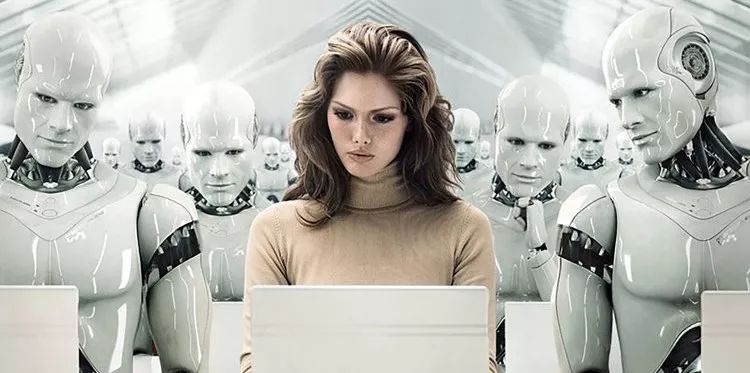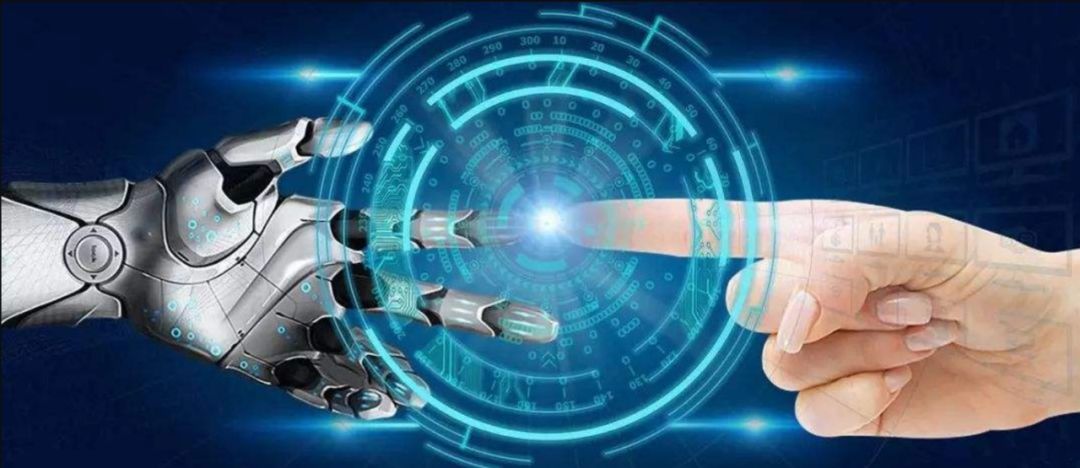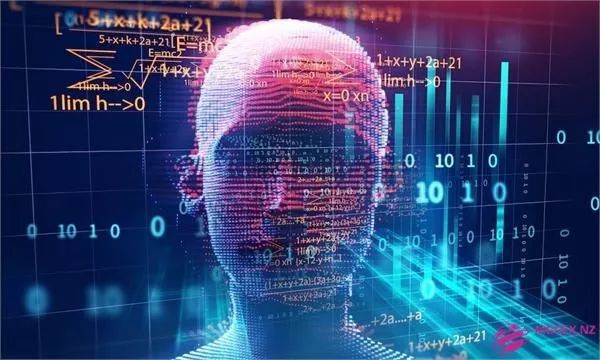Technical Observation | Putting A "tightening Curse" On Artificial Intelligence: Countries Around The World Actively Launch Artificial Intelligence Ethical Rules
Technical Observation | Putting A "tightening Curse" On Artificial Intelligence: Countries Around The World Actively Launch Artificial Intelligence Ethical Rules
In the future, the development of artificial intelligence will be full of various uncertainties. Problems such as algorithm discrimination, data abuse and human unemployment may follow, bringing unprecedented challenges to human society. How to avoid the major risks brought about by the development of artificial intelligence and better use artificial intelligence technology to benefit society?Only by letting ethics take the lead and putting a


In the future, the development of artificial intelligence will be full of various uncertainties. Problems such as algorithm discrimination, data abuse and human unemployment may follow, bringing unprecedented challenges to human society. How to avoid the major risks brought about by the development of artificial intelligence and better use artificial intelligence technology to benefit society? Only by letting ethics take the lead and putting a "tightening curse" on the "omnipotent" artificial intelligence can we make artificial intelligence go in the right direction and become a capable assistant to help mankind explore the future.
Why is the "artificial intelligence ethics" important?
Science and technology are neutral and can be used to benefit mankind or harm mankind. With the rapid development of science and technology, the greater its power, the more serious the possible consequences, and this impact is global and all mankind. Every major technological invention in history, such as electricity, steam engines, the Internet, etc., will bring new risks and challenges to society, such as unemployment, privacy, and security. Technological progress has brought ethical problems more than once. What will technology bring to mankind? Is it progress? Is it destruction? This is a question that will never be argued.
At the beginning of the Second Industrial Revolution, Marx pointed out that the machine system is different from general tools and is a "human brain organ created by human hands". It is not only a powerful body that is alien to others, but also controlled by the accumulation and sharing of the whole society. "universal intelligence". In the era of weak artificial intelligence, humans are obviously more fond of machines than worry. Machines can carry heavy objects, machines can drive unmanned, and machines can quickly calculate... With the rapid advancement of technology, artificial intelligence can gradually realize some kind of computable perception , cognition and behavior, functionally simulate human intelligence and actions, showing a replacement for the core organs of humans and other organisms in this area of human thinking. Artificial intelligence is no longer a simple tool, and has begun to constantly blur the boundaries between the physical world and the individual, refresh people's cognitive and social relations, and extend complex ethical, legal and security issues.
Asimov proposed in his short story "Ring Dance" (1942) that he obeyed the moral laws of robots through the built-in "machine ethics regulator". He conceived the three laws of robots:
● The first law is that robots shall not harm humans or watch humans be harmed;
● The second law, in the case where it does not conflict with the first law, the robot must obey human commands;
● The third law, without violating the first and second laws, robots have the obligation to protect themselves.
Later, in order to overcome the limitations of the first law, he also proposed the zero-law of robots with higher priority: robots must not harm the whole human beings or watch the whole human beings be harmed.

Back to the real development of artificial intelligence, with the development of applications such as drones, autonomous driving, industrial robots, and lethal autonomous weapons, a large number of new social problems have emerged. However, there are still many possibilities and uncertainties in the future development of artificial intelligence. Because of its certain lag and conservatism, it is difficult to achieve effective supervision of artificial intelligence. Only by establishing complete artificial intelligence ethical norms and putting an ethical and moral "curse" on artificial intelligence ahead of time can we obtain more dividends of artificial intelligence and let technology benefit mankind. The mainstream view of the current scientific community is that machines cannot be unethical, otherwise the world will be unimaginable. According to Professor Rosalind Picard, director of the MIT Emotional Computing Research Group, “The more free the machine, the more ethical code is needed.”
Countries around the world are actively introducing the ethical rules of artificial intelligence
In the book "Social Control of Technology", the British philosopher David mentioned that the social consequences of a technology cannot be expected in the early stages of technological life. However, when undesired consequences are discovered, technology has often become so part of the overall economic and social structure that it is difficult to control it. This is the dilemma of control, also known as the "Colin Gridge Dilemma".
To avoid the governance of artificial intelligence technology innovation and governance falling into the "Colin Gridge Dilemma", we must conduct in advance and make arrangements in advance. Although there are many different opinions on where artificial intelligence will go in the future, it has become a basic consensus to impose ethical regulation of artificial intelligence.
On June 6, 2016, the ethics committee member of the Japanese Artificial Intelligence Society drafted a draft ethical outline for researchers. The draft proposes the possibility that AI brings harm to human society, and requires measures to be taken to eliminate threats and prevent malicious use." The draft points out that artificial intelligence has broadness and potential independence, and may give humanity in areas that R&D personnel have not predicted. It can be harmful to human society and the public interest. The draft puts forward warning: "We must never let what humans create destroy human happiness." In addition, the draft also points out that AI should be eliminated The threat to human security sounds the alarm to the society against its potential dangers and formulates relevant clauses on preventing malicious use.
In September 2016, the British Standard Industry Association released the industry's first public indicator on robot ethical design - "Guidelines for Ethical Design and Application of Robots and Machine Systems", aiming to ensure that intelligent robots produced by humans can be integrated into the morality of human society. specification.
In September 2016, five major technology giants including Amazon, Google, Microsoft and IBM announced the establishment of a non-profit organization: the Artificial Intelligence Cooperation Organization (on AI, full name: on to and), with the goals including: 1. Research on artificial intelligence. Provide demonstrations, covering areas including ethics, equity, and inclusion; transparency, privacy and shared use; cooperation between people and AI systems; and reliability and robustness of related technologies. 2. Promote the public's understanding and popularization of artificial intelligence from a professional perspective, and regularly share progress in the field of artificial intelligence. 3. Provide an open platform for researchers in the field of artificial intelligence to discuss and participate, so that communication between researchers is simpler and more unhindered.
In November 2016, the American Institute of Electrical and Electronic Engineers (IEEE) released the world's first "Draft Design Code of Artificial Intelligence Ethics ( )". I hope to use this document to help the technology industry build an AI automation system that can benefit humans and change moral ethics without worrying.
In January 2017, at the Al conference held in Asiloma, California, nearly a thousand experts in the field of artificial intelligence related to the joint signing of the famous "23 Principles of Asiloma Artificial Intelligence". Enable future AI researchers, scientists and lawmakers to follow to ensure safety, ethics and benefits.
In November 2017, to ensure that the future of artificial intelligence development remains ethical and socially conscious, the American Institute of Electrical and Electronic Engineers (IEEE) announced three new standards for artificial intelligence ethics: ethics of mechanized systems, intelligent systems and automatic systems. Promote standards for fail-safe design of standard, automatic and semi-automatic systems, ethical artificial intelligence and the well-being measures of automated systems.
On April 25, 2018, the European Commission issued the "EU Artificial Intelligence" document, proposing the EU path of artificial intelligence. The document states that the EU is trying hard to ensure international competitiveness in the field of artificial intelligence, so that all EU countries can keep up with the digital transformation and use EU values as the basis for new technologies. Based on European values, the European Commission proposed a three-pronged approach to developing artificial intelligence: increasing public and private investment, preparing for the socio-economic change brought about by artificial intelligence, and establishing appropriate ethics and Legal framework.
In April 2018, the Special Committee of Artificial Intelligence of the House of Lords issued a report saying that in the process of developing and applying artificial intelligence, it is necessary to put ethics at the core to ensure that this technology better benefits mankind. The report proposes that an "artificial intelligence standard" should be established that applies to different fields, which mainly includes five aspects: artificial intelligence should serve the common interests of mankind; artificial intelligence should follow the principles of intelligibility and fairness; artificial intelligence should not be used in Weak data rights or privacy of individuals, families and even communities; all citizens should have the right to receive relevant education to adapt to the development of AI mentally, emotionally and economically; AI should never be given any harm, destruction or deception of humanity autonomy.
In April 2019, the European Commission released the official version of the "Ethical Code for Trusted AI (for AI), which proposed a framework for realizing the entire life cycle of trustworthy artificial intelligence. According to the official explanation, "trusted artificial intelligence" has two necessary components: one is to respect basic human rights, rules and regulations, core principles and values; the other is to be technically safe and reliable to avoid unintentional caused by insufficient technology damage.

How should China make efforts in the construction of artificial intelligence ethics?
In recent years, the rapid development of China's artificial intelligence industry has been obvious to all in the world. However, the discussion on artificial intelligence ethics in China is far from forming a climate, and there is a clear gap with Europe, the United States, and even Japan and South Korea. In the long run, the lack of artificial intelligence ethical rules will inevitably lead to a decline in the competitiveness of artificial intelligence products and the loss of the right to speak for artificial intelligence standards. It is urgent to build an ethical norm for artificial intelligence based on global values and in line with Chinese characteristics. In addition to experiencing the baptism of advanced technologies such as artificial intelligence, the modernization and intelligent transformation of Chinese society also need to undergo the spiritual influence of modern ethics.
First, we must attach great importance to the ethical supervision of cutting-edge technologies from a strategic perspective. Similar to artificial intelligence, cutting-edge technologies such as robots, gene editing, big data, 3D printing and "nanotechnology" may trigger ethical and moral crises, and the data abuse, personal privacy and discrimination involved have certain similarities. If these ethical crises cannot be prevented and effectively resolved in advance, they will cause serious obstacles to the development of cutting-edge technologies. In this regard, I should attach great importance to the ethical supervision of cutting-edge technologies strategically, coordinate resources of relevant departments, and actively explore ethical principles that are in line with the development of cutting-edge science and technology.
The second is to promote people from all walks of life to participate in the formulation of artificial intelligence ethical rules. In order to avoid ethical risks in the development of artificial intelligence, the academic and industry of artificial intelligence, as well as all sectors of social disciplines such as ethics, philosophy, and law should participate in the formulation of principles and work closely together. The existing research on artificial intelligence ethics often lacks the participation of senior R&D personnel in the industry, which may make it difficult to implement the rules of artificial intelligence ethics. Only with the wide participation of people from all walks of life can the ethical rules of artificial intelligence be more universal and operational, and can they play a greater social value.
The third is to actively carry out foreign exchanges and build global consensus. With the increasing diversification of global cultural and ethical values, the ethical standards and values of artificial intelligence technology need to be reached international consensus. At present, research on artificial intelligence ethics is mostly dominated by the United States and Europe, and lacks voices from developing countries and also from Eastern culture. In this regard, I should actively carry out foreign exchanges, build global consensus, enhance my country's voice in the formulation of artificial intelligence standards, and seize the initiative in future development.
Author丨Wei Ying Gong Xueyuan

Introduction to the Institute
The International Institute of Technology and Economics (IITE) was established in November 1985. It is a non-profit research institution affiliated to the Development Research Center of the State Council. Its main function is to study major policy, strategic and forward-looking aspects in the development of my country's economic and scientific and technological society. Problems, track and analyze the world's scientific and technological and economic development trends, and provide decision-making consulting services to the central and relevant ministries and commissions. "Global Technology Map" is the official WeChat account of the International Institute of Technology and Economics, committed to convey cutting-edge technological information and scientific and technological innovation insights to the public.
Address: Building A, Building 20, Xiaonanzhuang, Haidian District, Beijing
Phone: /6558



